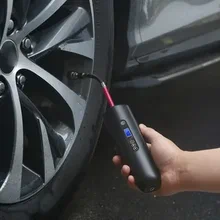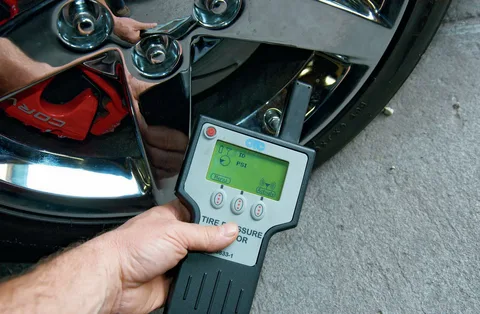Why Tyre Pressure Monitoring Is a Game Changer
Tyre pressure monitoring is not just about keeping your tyres inflated; it’s about safety, efficiency, and saving money. If you’ve ever had a flat tyre in the middle of nowhere or noticed your fuel efficiency dropping, you already know how crucial this system is.
In the UAE, where high temperatures can wreak havoc on vehicle tyres, having a tyre pressure monitoring system (TPMS) is a must. Whether you’re driving on highways or desert roads, maintaining proper tyre pressure is essential for a smooth and safe ride.
What Is Tyre Pressure Monitoring?
Tyre pressure monitoring is a system that continuously checks the air pressure inside your tyres. It alerts you when the pressure drops below the recommended level, preventing potential hazards like tyre blowouts, increased fuel consumption, and uneven tyre wear.
Types of Tyre Pressure Monitoring Systems (TPMS)
- Direct TPMS – Uses sensors inside each tyre to measure air pressure.
- Indirect TPMS – Works with your car’s ABS system to estimate pressure based on wheel speed.
- Wireless Tyre Pressure Monitoring – A modern approach that sends real-time data to your dashboard or smartphone.

Why Tyre Pressure Monitoring Is Essential in the UAE
The UAE’s extreme weather conditions make vehicle tyre health monitoring crucial. Here’s why you need to keep an eye on your tyre pressure:
- High temperatures increase tyre pressure – Excessive heat expands air inside the tyres, leading to overinflation and a higher risk of blowouts.
- Rapid deflation due to punctures – Sharp objects on the road can cause sudden air loss.
- Fuel efficiency matters – Properly inflated tyres reduce rolling resistance, which means less fuel consumption.
- Extended tyre lifespan – Keeping your tyres at the right pressure prevents uneven wear and tear.
Benefits of Tyre Pressure Monitoring
1. Improved Safety
A tyre safety check isn’t just a recommendation—it’s a necessity. TPMS helps prevent accidents caused by underinflated or overinflated tyres, especially on UAE’s fast-moving highways.
2. Better Fuel Efficiency
Did you know that underinflated tyres can increase fuel consumption by up to 3%? Keeping your tyres properly inflated means fewer trips to the petrol station.
3. Saves You Money
Uneven tyre wear leads to premature replacement. TPMS helps ensure that your tyres last longer, reducing the need for frequent replacements.
4. Reduced CO₂ Emissions
Lower fuel consumption means fewer emissions. Keeping your tyres in check is a simple yet effective way to reduce your carbon footprint.
How to Use Tyre Pressure Monitoring Effectively
1. Check Your TPMS Alerts
Whenever you see the TPMS warning light, don’t ignore it. Pull over safely and check your tyre pressure.
2. Perform Regular Manual Tyre Safety Checks
Even with a TPMS, manually checking your tyre pressure once a month ensures accuracy.
3. Keep a Portable Air Compressor
A portable air compressor can help you adjust your tyre pressure on the go, especially if you’re driving long distances.
4. Maintain a Proper Tyre Pressure Level
Refer to your car’s manual for the recommended tyre pressure. Don’t rely on guesswork.
FAQs About Tyre Pressure Monitoring
1. How often should I check my tyre pressure?
At least once a month or before long trips.
2. Can TPMS replace manual tyre checks?
No, TPMS is a helpful tool, but manual checks ensure accuracy.
3. What should I do if my TPMS light turns on?
Check your tyre pressure immediately and adjust as needed.
4. Does TPMS work with all tyres?
Most modern cars come with built-in TPMS, but aftermarket solutions are available for older models.
Final Thoughts
Tyre pressure monitoring is more than just a convenience—it’s a necessity, especially in a country like the UAE, where driving conditions demand extra caution. Investing in a wireless tyre pressure monitoring system or regularly performing a tyre safety check can prevent accidents, save fuel, and extend the lifespan of your tyres.
Stay safe, drive smart, and make sure your tyres are always in top condition!

